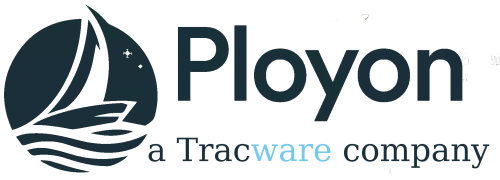In today’s rapidly evolving maritime industry, the power of transactional maintenance data is revolutionising operations, performance, and safety. As the shipping, naval, and oceanic sectors continue to navigate the waters of digital transformation, unlocking the potential of this valuable data becomes paramount. However, challenges such as data silos, the lack of a common data standard, and the need for collaboration pose significant obstacles.
The maritime industry thrives on the seamless flow of information, yet fragmented data storage and isolated data sources create data silos that hinder comprehensive insights and holistic decision-making. To address this issue, maritime organisations must implement robust data governance frameworks that break down data silos and foster collaboration across the industry.
In our previous blog post on “Unleashing the power of transactional maintenance data in the maritime industry,” we explored how transactional maintenance data can enhance performance, reliability, and safety. Building upon those insights, this article dives into the best practices for implementing data governance in maritime organisations.
Within the context of the maritime industry, effective data governance entails overcoming data silos, establishing a common data standard, protecting original equipment manufacturer (OEM) data, promoting collaboration, and fostering knowledge sharing. By adhering to these best practices, maritime organisations can harness the full potential of transactional maintenance data, driving industry advancement and unlocking new possibilities for operational efficiency, safety improvements, and collaborative innovation.
In the following sections, we will delve into the key components of an effective data governance framework, discuss strategies for data management and integration, address the importance of data security and privacy, explore the need for a common data standard, and highlight the significance of collaboration and knowledge sharing. Together, these best practices lay the foundation for breaking down data silos and cultivating a culture of data-driven decision-making within maritime organisations.
Join us on this journey as we uncover the path to effective data governance in the maritime industry. By adopting these best practices, we can collectively navigate the challenges of data fragmentation and unlock the true potential of transactional maintenance data, propelling the industry towards a future of enhanced performance, safety, and collaboration.
TOC
- Understanding Data Governance in the Maritime Industry:
- Key Components of an Effective Data Governance Framework:
- Data Management and Integration:
Understanding Data Governance in the Maritime Industry:
In the ever-evolving digital landscape, data governance has emerged as a critical discipline for maritime organisations seeking to harness the power of data to drive operational excellence, safety, and industry advancements. This section explores the intricacies of data governance in the context of the maritime industry, shedding light on its definition, relevance, and the specific challenges it poses.
Data governance in the maritime sector encompasses establishing frameworks, policies, and processes that ensure data integrity, accessibility, security, and compliance throughout the data life-cycle. It provides a structured approach to managing and leveraging data assets effectively, enabling organisations to make informed decisions, enhance operational efficiencies, and drive industry progress.
The maritime industry, with its complex ecosystem of stakeholders and extensive regulatory requirements, presents unique challenges for implementing robust data governance practices. Regulatory compliance plays a crucial role, as organisations must adhere to international and regional data regulations while operating across borders. The management of data silos and fragmented data storage within different entities limits the industry’s ability to gain comprehensive insights and collaborate effectively. Furthermore, the diverse array of stakeholders, including vessel owners, operators, manufacturers, original equipment manufacturers (OEMs), regulatory bodies, and service providers, introduces complexities in aligning data governance strategies and fostering collaboration.

Overcoming these challenges is essential to unlock the full potential of data in the maritime industry. By establishing effective data governance frameworks, organisations can ensure data quality, maintain regulatory compliance, mitigate risks, and enable seamless data sharing and collaboration. Moreover, robust data governance facilitates evidence-based decision-making, enhances operational efficiency, supports predictive maintenance, and drives innovation across the industry.
Key Components of an Effective Data Governance Framework:
A robust data governance framework serves as the cornerstone for successful data management and utilisation within maritime organisations. It provides a structured approach to ensure data integrity, accessibility, and compliance while maximising the value derived from data assets. This section delves into the key components that constitute an effective data governance framework and explores their significance in driving organisational success.
At the core of a data governance framework is the establishment of clear data ownership, roles, and responsibilities within the organisation. By clearly defining who is accountable for data management, decision-making, and data quality assurance, organisations can foster a culture of data stewardship. Assigning data custodians and data stewards who have the necessary expertise and authority helps ensure that data-related tasks and responsibilities are carried out effectively throughout the data life-cycle.
Data quality management is another critical component of a robust data governance framework. High-quality data is the foundation for making informed decisions, driving operational efficiencies, and facilitating accurate analysis. This entails implementing data cleansing, validation, and standardisation processes to ensure consistency, accuracy, and reliability of data across systems and databases. By proactively addressing data quality issues, organisations can mitigate risks associated with erroneous or incomplete data, leading to improved decision-making, and enhanced operational performance.
In addition to data ownership and quality management, a comprehensive data governance framework incorporates data policies, standards, and procedures. These guidelines define how data should be collected, stored, shared, and protected. Establishing data governance policies and standards helps organisations maintain compliance with relevant regulations, industry best practices, and data privacy requirements. It ensures that data is treated as a valuable asset and handled in a consistent and secure manner throughout the organisation.

Furthermore, an effective data governance framework encourages collaboration and communication across departments and stakeholders. It breaks down silos and facilitates cross-functional collaboration to ensure data consistency, accuracy, and usability. Collaboration fosters a shared understanding of data requirements, improves data integration efforts, and enables the development of holistic insights and analytics.
By implementing a robust data governance framework that encompasses clear data ownership, quality management, data policies, and collaboration, maritime organisations can harness the full potential of their data assets. This empowers them to make data-driven decisions, optimise operations, comply with regulations, and drive innovation and growth within the industry. In the subsequent sections, we will explore each of these key components in detail, providing insights and best practices to guide organisations in their data governance journey.
Data Management and Integration:
Data management and integration play a pivotal role in the successful implementation of data governance practices within maritime organisations. In this section, we will delve into the strategies and best practices for effectively managing and integrating transactional maintenance data. We will also explore the benefits of centralising data repositories and implementing data management systems, as well as the importance of data integration across different systems and departments for holistic data insights.
Managing and integrating transactional maintenance data effectively is crucial for optimising operational efficiency, reducing costs, and improving decision-making. Organisations can employ various strategies to achieve this, including data standardisation, consolidation, and real-time data capture. By establishing consistent data formats, naming conventions, and quality standards, organisations can ensure that their transactional maintenance data is accurate, accessible, and reliable. Additionally, capturing real-time data enables timely analysis and proactive maintenance planning, leading to improved asset performance and reduced downtime.

Centralising data repositories and implementing data management systems offer numerous benefits for maritime organisations. By consolidating data into a single, unified repository, organisations can improve data visibility, eliminate data silos, and simplify data access for authorised stakeholders. This centralisation fosters data governance enables better compliance with regulatory requirements and facilitates efficient data retrieval and analysis. Moreover, implementing data management systems equipped with features such as data cleansing, validation, and metadata management ensures data accuracy, integrity, and consistency throughout the organisation.
Data integration across different systems and departments is essential for gaining holistic data insights and a comprehensive view of maritime operations. By breaking down data silos and integrating data from various sources, organisations can uncover valuable correlations, patterns, and trends that would otherwise remain hidden. Integrated data enables advanced analytics, trend analysis, and predictive maintenance, empowering organisations to make data-driven decisions and optimise their operations. Furthermore, data integration supports seamless information flow, reduces duplication of efforts, and promotes cross-functional collaboration, leading to improved efficiency, collaboration, and overall performance.
In the next blog, we will delve deeper into the strategies, tools, and best practices for managing and integrating transactional maintenance data effectively. We will explore topics such as data standardisation, centralisation of data repositories, data management systems, and techniques for data integration across systems and departments. By implementing these practices, maritime organisations can harness the power of their data assets, unlock valuable insights, and drive continuous improvement in their operations.





